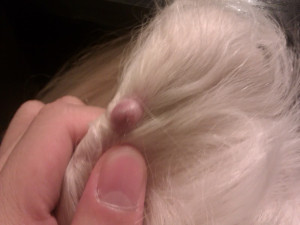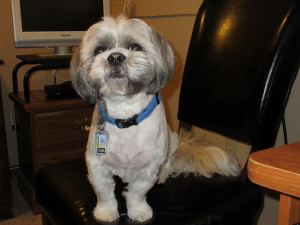Introduction
Death. Alas, death is something that no living being can avoid. Nowadays cancer is considered as one of the most widely-spread causes of death, but not many people know cancer affects dogs too. And the best way to postpone the inevitable as far as possible is to know the symptoms and notice them in time. Of course, only a skillful vet can diagnose oncology with certainty, but the symptoms you still need to know.
The Symptoms
Weight loss and gain
If a dog started losing weight for no obvious reason, this is a bad sign.
Bumps
Having notice a bump or lump under the dog’s skin, you should take some measures. This may be either a benign tumor or a deadly carcinoma, especially if they discharge blood. Anyway, you can’t know it for sure until the bump is cut out and send to a lab. In order to find a new bump in time, check your dog’s skin monthly. Remember to check around the face and behind ears.
Appetite Loss
Among all other diseases, cancer is one that may decrease appetite, but of course one single appetite loss cannot serve as a relevant sign of an oncology disease.
Spleen
Exhaustion, lack of energy can be caused by cancer too. If your dog shows no interest in playing and even walking, if he is just laying down, eyes closed, instead of running to you when you are entering the home, this may well be a symptom of cancer.
Changes in Behavior
Sudden tantrums or alienation may be caused by cancer as well. Besides, behavioral changes usually manifest in physical changes, for example limp, slow in getting up or inability to run or walk slowly.
Swollen Belly
Belly can swell not only because of overeating or pregnancy as swelling caused by overeating disappears quickly after a meal and pregnancy is preceded by the corresponding changes in organism, not to mention coitus. If neither of these appears then cancer may be the reason.
Diarrhea
Of course, diarrhea is not something that should put you in fear immediately. But if diarrhea is obviously not as a result of changing diet, it’s worth the careful attention of you and your vet.
Bad Smell
Tumor may result in unusual odor from nose, mouth or anus. You probably know what your dog’s usual breath smells like, so it must be easy for you to compare.
Respiratory Problems
Most probably your dog is coughing because he caught a common cold. But if he is also wheezing and feels shortness of breath after a little exercise, these might be symptoms of lung cancer.
E.N.T. Problems
Constantly runny nose, sneezing, excessive tears and bulging eyes are also signs that cannot be ignored. Together with other symptoms, these may be caused by a growing nasal carcinoma.
Open Sores
Wounds and sores that are not healing may be caused by serious medical issues, including cancer.
Pale Gums
Cancer often causes blood loss and consequently pale color of gums.
Treatment
Firstly, you should understand that simple measures you can take at home to treat cancer simply do not exist. There is nothing you can do by your own. However, there are plenty of things doctors can do:
- Surgery
- Chemotherapy
- Radiotherapy
- Cryosurgery (freezing)
- Hyperthermia (heating)
- Immunotherapy
Of course, the type of treatment depends on the type of cancer and defined by a veterinarian. To find out what type of cancer your dog has, if any, a specialist can study the symptoms, e.g. hardened breathing indicates lung cancer; oral cancer is characterized by excessive drooling, difficulties in swallowing and/or bleeding mouth; severe diarrhea is a symptom of digestive cancer etc.
Conclusion
We hope that this leaflet will prove to be effective in opportune diagnostics of cancer, so you will have enough time to wrest your beloved pet from the hands of cancer before it is too late.







